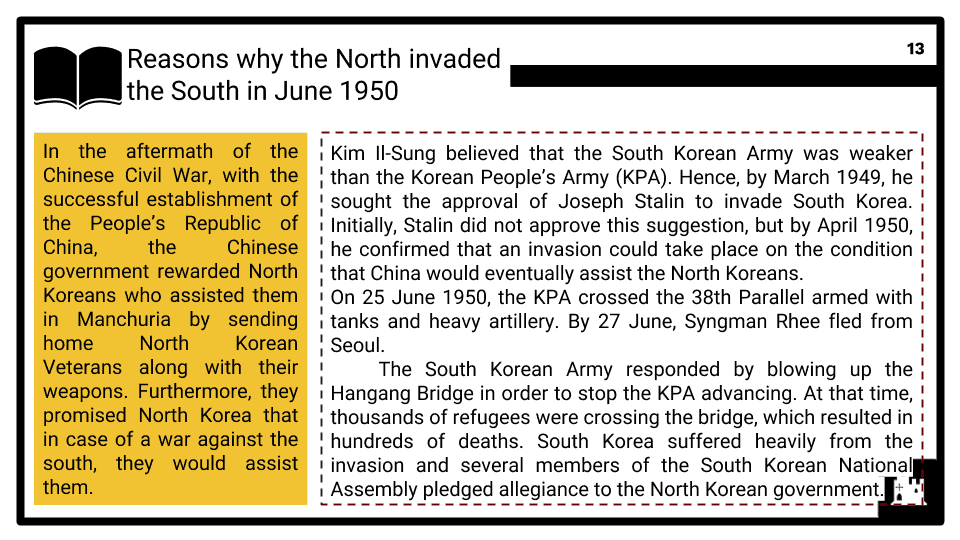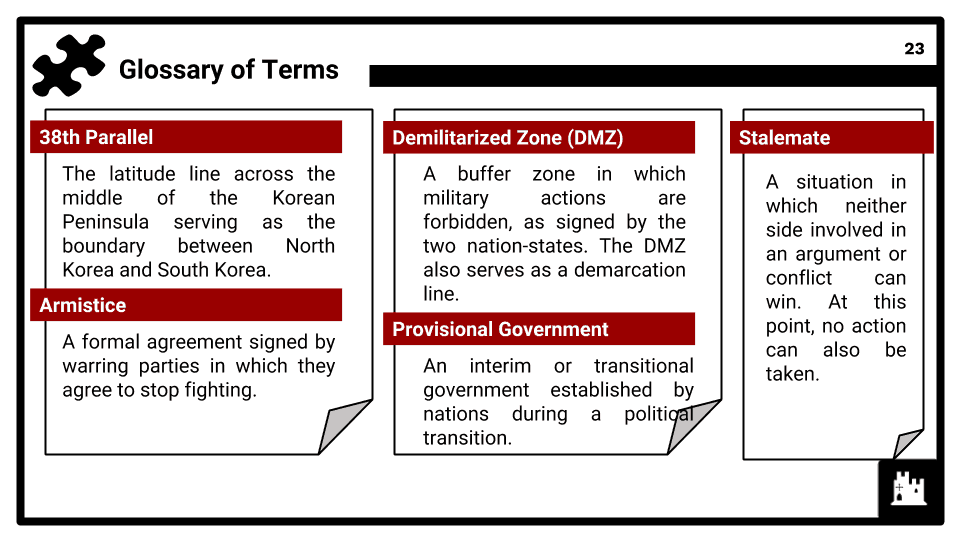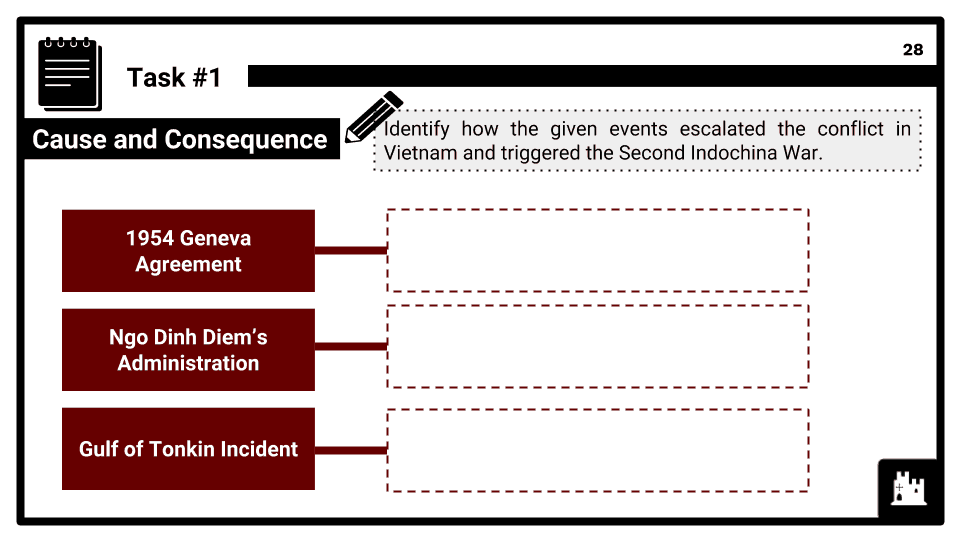Teach any AQA module BD Conflict and tension in Asia, 1950-1975, no prep needed!
Do you want to save dozens of hours in time? Get your evenings and weekends back? Be fully prepared to teach any AQA GCSE topic?
Every AQA topic is covered, and each module comes complete with:
BD Conflict and tension in Asia, 1950-1975
In this module, students will focus on events in Asia that were a consequence of conflicting ideologies and complex and diverse interests of various parties. Themes explored include the role of nationalist movements in causing and sustaining conflict and the ways in which the wars in Asia were proxies for the Cold War. Students will analyse how and why conflict occurred the reasons that made peaceful resolution difficult. This module also considers the roles and influences of key leaders and organisations and their part in fostering or hampering international relations.
This module consists of three parts detailed below:
Part one: Conflict in Korea
Themes explored include:
- The causes of the Korean War: nationalism in Korea; US relations with China; the division of Korea; Kim Il Sung and Syngman Rhee; reasons why the North invaded the South in June 1950; the US and the UN responses; USSR's absence from the UN.
- The development of the Korean War: the UN campaign in South and North Korea; Inchon landings and recapture of South Korea; UN forces advance into North Korea; the reaction of China and the intervention of Chinese troops in October 1950; the sacking of MacArthur.
- The end of the Korean War: military stalemate around the 38th Parallel; peace talks and the armistice; the impact of the Korean War for Korea, the UN and Sino-American relations.
Part two: Escalation of conflict in Vietnam
Themes explored include:
- The end of French colonial rule: Dien Bien Phu and its consequences; Geneva Agreement, 1954; civil war in South Vietnam; opposition to Diem; the Vietcong – aims, support, leadership and guerrilla tactics and Ho Chi Minh.
- The US involvement: the Domino Theory; intervention under Eisenhower and Kennedy; Strategic Hamlets programme.
- Johnson’s War: the Gulf of Tonkin; the US response to Vietcong tactics; the mass bombing campaign; demands for peace and growing student protests in the USA; My Lai and its public impact; Search and Destroy tactics and impact; the Tet Offensive and its consequences for the war.
Part three: The ending of conflict in Vietnam
Themes explored include:
- Nixon’s War: Vietnamization; chemical warfare; bombing campaign of 1970–1972; relations with China; widening of the war into Laos and Cambodia.
- Opposition to war: Kent State University; the importance of the media and TV in influencing public opinion; the context of the Watergate affair.
- The end of the war: the Paris Peace talks; the role of Kissinger; the US withdrawal; fall of Saigon; the price of conflict; problems of Vietnam in 1975.
This module download also includes the following teaching resources:
- Module 2 Kgb Tactics Table (pdf)
- Module 2 My Lai Timeline Information (pptx)
- Module 2 Table Questions (pptx)
- Module 1 Sino-Soviet Relations Card Sort Split (pdf)
- Module 2 Cia Group Information (pdf)
- Module 1 Sino-Soviet Relations Card Sort Split (doc)
- Module 2 My Lai Timeline Information (pdf)
- Module 2 Kgb Tactics Table (pptx)
- Module 2 Table Questions (pdf)
- Module 2 Cia Group Information (pptx)
- Module 2 My Lai Source (pptx)
- Module 2 How The Vietminh Fought In Vietnam Information (pdf)
- Module 2 My Lai Source (pdf)
- Module 2 Anti-Vietnam Reasons (pptx)
- Module 2 How The Vietminh Fought In Vietnam Information (pptx)
- Module 3 Kent State Shootings Lesson Material (pdf)
- Module 2 Anti-Vietnam Reasons (pdf)
- Module 2 Why Did America Fight The Vietnam War- (mp4)
- Module 1 Why Did America Fight The Korean War- (mp4)
- Module 1 Un And Korea (pptx)
- Lesson 3 Us Withdrawal From Vietnam (pptx)
- Module 3 Failure Of Vietnamisation Fact Sheet (pdf)
- Module 2 Us And Vietnam (pptx)
- AQA GCSE History Exam Booklets (2020 & 2021 Syllabus) (zip)




